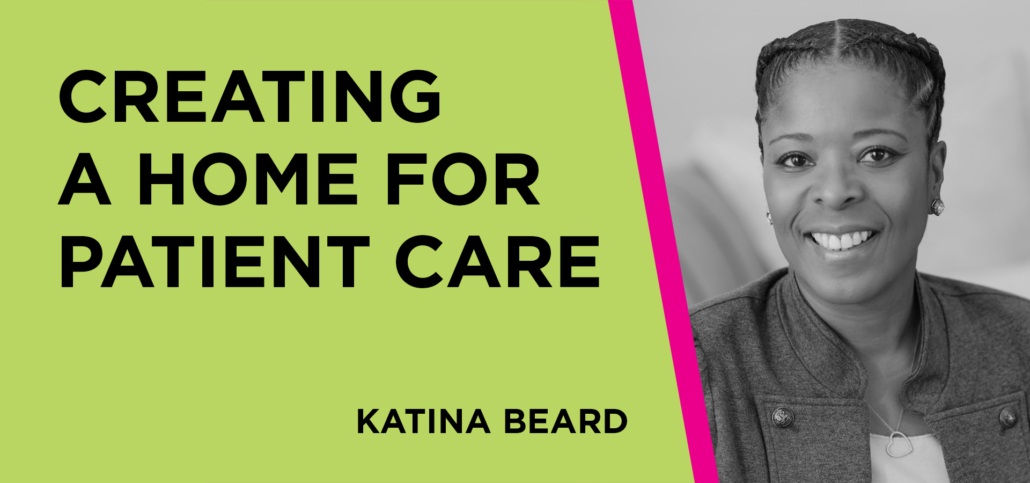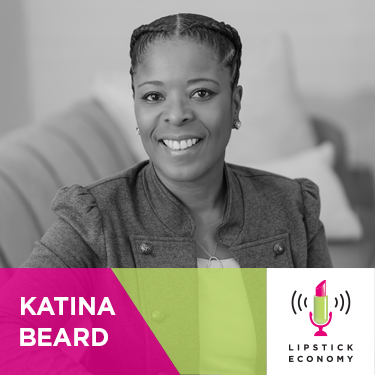Katina Beard
Creating a Home for Patient Care
Katina Beard has served as CEO of the Matthew Walker Comprehensive Health Center for 10 years and served the center for 27 years. She was recently named one of the Most Powerful Women by the Nashville Post. We love her because she said that being on a podcast was something she always wanted to do! Matthew Walker is a vital part of our community providing primary medical care, dental care, behavioral health services, and health education to approximately 18,000 people annually in Nashville, Clarksville, and Smyrna, Tennessee.
The Matthew Walker Comprehensive Health Center has been serving Middle Tennessee for 55 years, can you tell us how it came about?
“Matthew Walker was founded in 1968 by Dr. Matthew Walker, Sr. who was a surgeon at Meharry at the time. However, the roots go much deeper than that,” Beard shares. “His grandson, Matthew Walker III, would always tell this story about him being a ghost surgeon because during those times it was still segregation. And he would be called in the night or early mornings to operate in hospitals that didn’t treat black people and didn’t allow for black physicians, but needed that level of skill. So he would go in under the darkness of night and provide surgeries to people, and they would never know the difference. I was back then when you didn’t have to disclose all of that. It would never happen today. But it just tickles me to think that there are so many people walking around that are living, or families exist because he had that type of heart to be able to go and provide services even in places where he was not wanted.”
What is the heart behind the Matthew Walker Comprehensive Health Center?
“We have been pushing Dr. Walker’s vision forward now for many years. I’ve been the CEO for 10 years, and it has been my greatest honor to be one of the leaders that has been able to forward his work, his vision, his legacy, through continuing to provide services in communities that are reflective of those communities, providing services that are meaningful, timely, accessible, regardless of anybody’s background, economic abilities, insurance status, and to do it with quality and with pride and with humility.”
What does the Matthew Walker Comprehensive Health Center provide?
“Yeah, comprehensive is, it is not just a, what is it? A tongue in cheek kind of word,” Beard begins, “No, we mean, so all of the services that you see on our website are all provided at our national clinic. And so that’s primary care services, which means we provide services for our youngest, our babies through our oldest adults, including pediatrics, prenatal services, internal medicine, family medicine. We have physicians and nurse practitioners and physician assistants. We have our own pharmacy. We have a nutrition office with the registered dietician with the food bank. We have onsite radiology, plain film, radiology and mammography. We have a dental clinic that is staffed by three dentists and a hygienist.”
Who do you treat?
“We are able to see anyone, there’s no one that can walk in our door and we go, oh, no, we can’t see you.” Beard describes the difference in the Matthew Walker Center and other healthcare places in Nashville, “Where more and more private physicians are refusing to accept Medicaid or Tenncare. And so it’s shrinking the pool of access and availability for that particular population. For people who are English as a second language, it’s difficult for them to find places that are culturally leaning into their culture and into their needs. And so there is still a great need for health centers in this work across our communities.” Beard also stresses that they treat both insured and uninsured.
How do you make sure everyone who needs to be treated has access to your services?
“We have a very large prenatal population in our Smyrna clinic. Our mobile unit is stored in Clarksville, really partners very strongly with our other agencies in Clarksville, so the food banks, the shelters, churches, to make sure that we are providing services to individuals that may be hard to reach or hard to reach us.“
What are some of the other barriers that you find that people find to healthcare just culturally or within our own communities that exist?
At Matthew Walker, Beard stresses the importance of reducing the number of trips and times and reasons that people would have to say their “thing” over and over again. When you come to Matthew Walker, she continues, the providers, nurse practitioners, physicians, anyone you need to see will come to you. This eliminates the challenges and barriers of having to go home and make fifteen different phone calls, to schedule fifteen different things. The nutritionist, and the behavioral health person is available if necessary. And as well as that, Matthew Walker tries to eliminate the cost barrier. As a culture, Beard says, we have to normalize people just being proactively healthy.
Tell us more about your food bank.
“We realized that people don’t have food. And this was way before people started saying, oh, we need to screen for food. Matthew Walker has, we’ve been doing that now for many years, screening individuals for their ability to eat.” Beard describes the process of this, as the providers noticing someone must not have milk at home if a baby comes in with anything else in their bottle, or people losing weight without explanation. “These people also are able to use our food pantry. And now we have a hypertension program, the heart of Nashville, where we are focused on reducing uncontrolled hypertension in the highest areas, between us and Nashville Health and the Nashville Food Project and Belmont American Heart Association, we came together and put this program together to really work toward reducing that number.”
What does that look like when you’re talking about this vulnerable population, how are you reaching them?
“For us, it is being in the places where we can easily reach the people who we’re trying to target. But again, that’s changing a little bit because we’re not just focused on individuals that are uninsured. We’re focused on the entire community.” Beard shares, “What I’ve found is that we just need to be consistent. If we say we’re going to be there, to be there, to keep showing up and it will grow, our character of consistency will grow and people will expect to see Matthew Walker in those spaces and to be a good partner. And so when I came into the office 10 years ago, I would tell people that Matthew Walker will show up to support the community, even if it’s not a win for us that day, because it will be a win for us because the community has gotten better.”
What would health equity in a community look like?
“Health equity is not just about an insurance card. Health equity is about giving everyone an opportunity to achieve their best health. So what that looks like in every community is giving everyone that same opportunity.”
Resources and Links
Katina Beard on LinkedIn
MWCHC on LinkedIn




